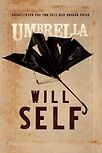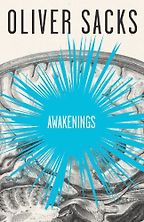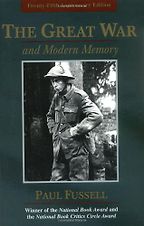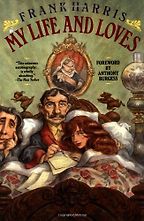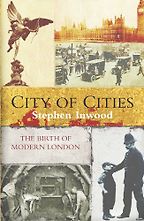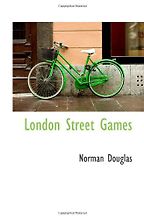James Joyce’s quote “A brother is as easily forgotten as an umbrella” adorns the cover of your new novel Umbrella. The novel could be characterised as modernist, and you clearly owe Joyce a greater debt than just that line.
It’s not modernist enough, I’m afraid. The modernist aspects of it include the refusal to accept the arbitrary divisions of chapters and line breaks. I wrote it like that because life doesn’t resolve itself into chapters, nor is it punctuated by line breaks. Continuous present is all we have, and stream of consciousness – which in a novel is arguably just as artificial as the stilted dialogue that you get in most conventional novels. They’re all stratagems to try to get closer to the texture of lived life.
Because we don’t think in prose?
Well, we often do think in prose. But we don’t think in the simple past, and we don’t think by the agency of an omniscient narrator. We just think. We didn’t go to the bank and withdraw some money from the cash machine. Nor are we being looked into by somebody who stands outside of us with complete knowledge about our motivations, and a sprinkling of depth psychology. That problem with the mechanics of the conventional prose novel are not true to my experience of life – which is chaotic, immediate, present tense, and not directed by some supernatural being. I just can’t do conventional, narrative fiction.
Can’t do it, or can’t stand it?
I can’t do it myself, and I don’t particularly engage with reading it either. I just don’t think that kind of novel is capable of addressing either what life is like subjectively, or what is happening in the wider world. It seems to me an abrogation of responsibility to deal with the impact of modernity on both the individual and the collective consciousness. It’s like a hangover from a prelapsarian world. The notion of the omniscient and invisible narrator is very close to the monotheistic and particularly the Judeo-Christian idea of God. That’s how the god narrator came about, and in the terms of political jargon it’s not fit for purpose.
So you feel that contemporary British novels from the literary establishment are unoriginal and not up to scratch?
I don’t read a lot of it, but when I do dip my toe in the water I’m not particularly struck by anything much. The resistance of British and English literature to modernism is a well attested-to fact. I don’t need to represent those arguments, or gussy them up. We all know that this is a culture that wants a jolly good read, with a beginning, a middle and an end, and sympathetic characters that they can identify with. That is the kind of book that tends to be lauded [in Britain]. It’s a culture that resists experimentation, sees it as continental and suspect, contrary to the empirical spirit of our thought.
But a novel’s form doesn’t have to reflect its characters’ state of being, so long as the reader gets into their inner life one way or another. Writers can get at the same psychological nub by different means.
Well, I’m not interested in psychology. Psychology, as Nietzsche said, is the beginning of all illness. I think anything else is balls. I’ve never read a book that gave me greater insight into people in that way.
Below Ian McEwan’s FiveBooks interview, one reader comment accused him of being “raised middlebrow”, namely middlebrow fiction treated as high art. Do you agree?
I think Ian has written some very interesting books, and he doesn’t pretend to be anything other than what he is. It’s not like he’s saying “I’m a highbrow writer” – and indeed who would say such a thing. But there is a tendency in English literary culture towards the high middlebrow. And there are certain writers who fulfil the desire that readers have to feel that they are working pretty hard at something, while in fact they’re not. If that’s what is meant by the reader’s comment, then I would endorse it.
There’s a flip side. I was speaking at a literary society in Edinburgh University a while ago, and I asked the audience who had read Ulysses. At least two thirds of the students there – about a hundred of them – had. So there’s no cause for despair. But there is an appetite for a certain kind of philistinism in our culture. We have nothing like [the French-speaking writers collective] Oulipo, or Georges Perec. Even some of the American experimentalists – like [Donald] Barthelme or [David] Foster Wallace – did remarkably little in that direction, and faced a cultural resistance to it.
You don’t feel that American contemporary fiction – not only the likes of Foster Wallace but Dave Eggers and Jennifer Egan – is experimenting with postmodernism?
Right. But postmodernism is a reaction against modernism, and a leaping back to behind the modernist moment – just like postmodern architecture, where the term comes from – to create art out of different styles. Maybe that’s what David Mitchell’s up to. I don’t know.
Does postmodernism intrigue you at all?
Not much. I think postmodernism is a retreat from the hard-edged insights of modernism itself. It’s an attempt to have the cachet of reinventing the traditional structure of narrative prose fiction without actually having to do the hard work implied by modernist insight. And what do we mean by postmodernism, anyway? Surely Don Quixote or Moby Dick or Gargantua and Pantagruel would all be classed as postmodern novels, but they were written in the 17th, 19th and 16th centuries respectively – so what’s going on there?
Still, postmodernism as a conscious literary form began in the 1940s – although today some of it can seem obfuscatory and clever clever, as if angling for a literary prize.
I don’t know any writers who are trying to be clever and get a literary prize. Who the fuck would bother with such a thing?
You’re not interested in winning one?
I’m very happy for whatever plaudits might come the way of my work, but I never ever sit down to write x with y in view – whether it’s a reader, a prize or a sale. If you write fiction, it would be strange to be too programmatic about it. It’s not like I have surveyed contemporary English fiction, and thought no one is doing this stuff so I must do it. I write because I feel driven to write. I write from a sense of inner necessity. I don’t write for anything other than that. Other people can write what they want to write, and read what they want to read.
Talking of reading, let’s begin on your book selection with Oliver Sacks’s Awakenings, which is linked at the hip to Umbrella.
I must have first read this book in the early eighties, and found it – like a lot of Sacks’s writing – absolutely fascinating. Not just because of the philosophical and scientific perspectives that he is involved in, but because of his involuntary self-characterisation. I used some of Sacks’s modes and mannerisms quite shamelessly as one of the sources for my character Zack Busner, who is a repeat presence in my fictions. So in a way the seeds of Umbrella were planted here, many years ago.
The two books share a plot device in encephalitis lethargica, a real epidemic in the early 20th century which caused some patients to slip into a coma for decades.
It was a real phenomenon, first identified in 1917 in Vienna – a pandemic of brain disease, inflammations in the lining of the brain, that spread at the end of the First World War. It affected as many as five or 10 million people worldwide. A third completely recovered after an attack. A third either suffered sleep agrypnia – where you can’t sleep at all until you die, horribly, after some days – or went into comas and died. The final third seemed to recover only to suffer further attacks months or years later, many of which resulted in long-term comas.
When Oliver Sacks went to work at the Highlands hospital in Brooklyn in the late sixties, he found victims of this third moiety of patients still alive on long-stay psychiatric wards. Around the same time, the drug L-DOPA was developed with various applications in mind, one of which was for Parkinsonian patients – a neurological disease related to encephalitis lethargica. Sacks had the idea of trying L-DOPA on these post-encephalitics, with rather spectacular and flamboyant results – hence the title of his book, Awakenings.
What happened?
They awoke, very dramatically, from these comas. Many of them were able to very lucidly describe what it had been like. They experienced a strange kind of ebullience, and initially seemed to exhibit considerable well being. But then they developed an exaggeration of the many little ticks, foibles and palilalia – the repetition of phrases – that had afflicted them in a muted way during this long-term torporous state. These in turn become flamboyant and extreme, until in the case of some of the patients Sacks had to withdraw the medicine, and they lapsed back into even worse and more catatonic states.
What attracted you to this all as a novelist?
All sorts of things. For a start there is the straightforward, Rip van Winkle thing of having people who are out of the world for almost half a century, and then reintroducing them to it. But more it was the physical things that happened to them, the extremity of the symptoms. Many of them exhibited almost savant-like capabilities – an ability to speak at incredibly quick levels, an ability to make calculations very fast. It seemed to be akin to what happens with certain other kinds of neurological damage that gives people extraordinary mental powers at the same time as terrible mental and physical deficiencies.
But mostly it was the ticks and jerks, and the way that Sacks writes about them, which triggered in me the idea that their bodies were responding to machinery in some way. There was a metronomic quality to these repetitive movements. It all began just at the end of the First World War, which was a watershed for industrialisation and the coming era of technology in civilisation. The war was an assembly line of death, and out of it came this illness, in which the individual human body seems to be caught up in a mechanistic frenzy. That was what most struck me.
That’s our segue to Paul Fussell’s book about World War I. This period was the starting gun for the modern era. What special import does it hold for you?
Fussell’s book brilliantly articulates many views which were inchoate in me before I read it. It’s ostensibly literary criticism, but it does much more than that. His thesis is the juxtaposition of the great powers marching off in August 1914, with their banners and tootling – “Dulce et decorum est pro patria mori” – and the reality of war. They expected a swift victory by Christmas, but got bogged down on the Western front in the worst kind of mechanised slaughter that the world has ever seen. The reversal between those two states is what created the ironic cast of the 20th century. I think that’s a very powerful argument, with a lot of explicatory force.
What do you mean by the “ironic cast” of the 20th century?
In 20th century culture – certainly in Europe after the First World War – saying one thing and meaning another became the standardised form of discourse. An assumed disjunction between demonstrative acts and cover acts was the stuff of all sorts of cultural production. It percolated right down, and spread right through society in all kinds of ways. The most obvious was a deepening and darkening of absurdist and satirical cultural discourses. It’s very difficult to think of Beckett, and that particular articulation of nihilism, without the First World War.
Was it also the beginning of our 20th century brand of malaise and melancholy?
Melancholy is just fine. Melancholy is good. It’s the black and the absurd which started with World War I. From the stand point of the 20th century, to be melancholic is good mental health.
What’s bad mental health?
Depression. Despair. Complete embitterment. Insanity of one form or another. Obsessive compulsive states of mind. This is all a function of modernity. The kind of hysteria that afflicted people in the late 19th century now looks like a walk in the park.
Are you afflicted by any of the above?
Oh no, I’m melancholy.
Glad to hear it. Do you see yourself as a pessimist though, or a contrarian?
I’m an anarchist. I’m implacably opposed to heirarchical systems of power and control. I also mistrust crowds, as they often operate according to their lowest common denominator. In terms of evolutionary psychology, the crowd is very close to a herd of stampeding wildebeest.
Moving back to before World War I, why are Frank Harris’s memoirs on your list?
I only included this book to show that cocks went in cunts before 1961. That’s all it’s there for. It’s a dreadful book. Appallingly written. But the great virtue of Harris is that he fucks a lot, and talks very explicitly about his fucking in a way that is totally believable. When you were young, you would read 19th century novels and sit there thinking: Are they fucking? Aren’t they fucked? Does that mean they fucked? There are children, but where’s the fucking? The conventions were so absolute about the representation of sex that you are always slightly confused about whether characters actually had sexual intercourse. Frank Harris is there to clear it up.
Harris was a larger than life, British-born writer and publisher. He ran away from school at 13, travelled to New York and worked as a boot black, a porter and a construction worker before returning to Europe and becoming an editor.
All that, and there’s plenty of shagging.
Your final two picks are both about London. City of Cities takes London from the 1880s up to World War I.
My perception is that London was the modernist city par excellence in 1900, and over the last century or so has retreated from its position on the cusp of modernity. In the early 1900s you had stock market quotes, electrified underground railways and pneumatic mail systems – the idea that we are significantly more modern in the physical fabric of the city today is a delusion. I wanted to try and evoke that. Inwood’s book is a very thorough and comprehensive social, political and cultural history of London during that period. He’s written other big books on London, but by narrowing his focus he has got a lot more detail in.
Do you feel we have regressed from that modernity in contemporary London?
Absolutely. It’s a Victorian city. I would say modernity was gone by the First World War. Walter Benjamin said Paris was the capital of the 19th century. London was the capital of the Edwardian era – the world city at that point. And it hasn’t been since, despite all this fuss about financial services and all of the foreign capital flowing in. The fabric of the city is irredeemably 19th century. But London is also endlessly protean. It may not be modern but it’s powerful in its genius loci. It does what it wants to do. It will look after itself. It will eat up all this Olympics bollocks and spit out the bones.
So what do you think London’s story is now, 100 years after its heyday?
John Gray, the philosopher, suggested that London will become the Singapore to the rest of Britain’s South East Asia. I’m afraid to say I think there’s a strong likelihood of that.
And what do you think is London’s essential character?
Opportunistic and yet curiously fatalistic. Not merely melioristic though it often tries to pretend it is. Like all big city characters, with a tendency towards both negative cynicism and stoical cynicism. Quick with the gob and the gab. Chancers, muckers – all of those things which can be both good and bad.
London Street Games is an unusual final choice.
Norman Douglas cottoned onto the fact that children’s games were a source of oral literature that lay outside of other kinds, and had not been studied before. In this strange book, he went out on the streets in the early 1900s, watched cockney kids playing and wrote it all down. It’s an exceptionally good bit of social anthropology. It’s all there. And rather like the Frank Harris book with sex, it’s a very direct window into cockney culture at that time, unmediated by the requirement to fulfil the expectations of bourgeois culture. That makes it invaluable for getting a feeling of what a working class child’s life might be like at that time.
It’s also a lot of fun. There’s a good hundred early 20th century street games listed: Paper chase, Egg-in-cap, Queenie, Missings out, French foot, Punch ball, Bounce ball, Wally, Dust holes, Rabbit in the hutch.
They’re all pretty weird. And they’re open to all sorts of interpretation.
As with Umbrella, it is a book steeped in the vernacular. Does the vernacular appeal to you in particular?
It does. I know that a lot of people – including many modernists – are not particularly interested in the vernacular, and think of it as a distraction. But I think it’s impossible to get close to things without it. In The Book of Dave, I bowdlerise English to get a kind of future speak, because language changes. I regard myself as a more faithful naturalist than much of naturalistic fiction.
From street games to the Games, will you give us a cynic’s word on the Olympics?
I’ve been a constistently outspoken critic of the whole thing. I object to my tax money being wasted on it, and I object to performance sport in general. I think it’s horseshit. Why don’t you just go run in a field, with sheep? It’s meaningless that some guy on a bicycle gets given 20 million quid. And the way the Olympics exist in a grotesque linkage or synergy with the international finance capital is so obvious. Both are arenas that exalt an essentially functionless and useless human performance of winning and losing, and use that as the tail that wags the dog. That’s why the Olympics feed so enormously into the collective psyche.
When it comes to London’s financial sporting performance, at least, we’ve seen recently that we all cheat and dope.
Exactly. The anology continues. HSBC has its doping scandal, as athletics has its own. The two of them are mirror images. No one should be shocked that there is corruption in the Olympics – that tickets are sold through foreign agents, that athletes are taking drugs and have huge financial contracts, that sponsors refuse to let people wear T-shirts with other corporate logos on them, that Macdonald’s makes you fat, that the infrastructure built in Stratford is useless to anybody, and that the Olympic legacy will not be fulfilled.
Schadenfreude is an unpleasant attribute, but if I were prone to it I could tell you that in a month or two’s time, the cost will come home big time, and people will start getting pissed off. The government couldn’t raise the money for the Olympics through the private sector, so the taxpayer had to put the money up for it – was forced to do so, undemocratically. And we will have nothing to show for it.
One more question, in coda. What do you feel a writer should use his twenties for?
Just read a lot of books. I certainly did, and still do. Do anything, really. Anything which brings you into contact with the world. The big crisis for literature today is creative writing [teaching], which is ludicrous at every level. It’s like these cunts like Cameron, who have never done anything but be a politician. And there isn’t a market for these creative writing graduates’ in most cases mediocre lucubrations. You are educating people to be writers who can’t make a living, who will go on to teach more writers who can’t make a living.
So just read books, and write, and live.
Five Books aims to keep its book recommendations and interviews up to date. If you are the interviewee and would like to update your choice of books (or even just what you say about them) please email us at editor@fivebooks.com
Five Books interviews are expensive to produce. If you've enjoyed this interview, please support us by donating a small amount.

